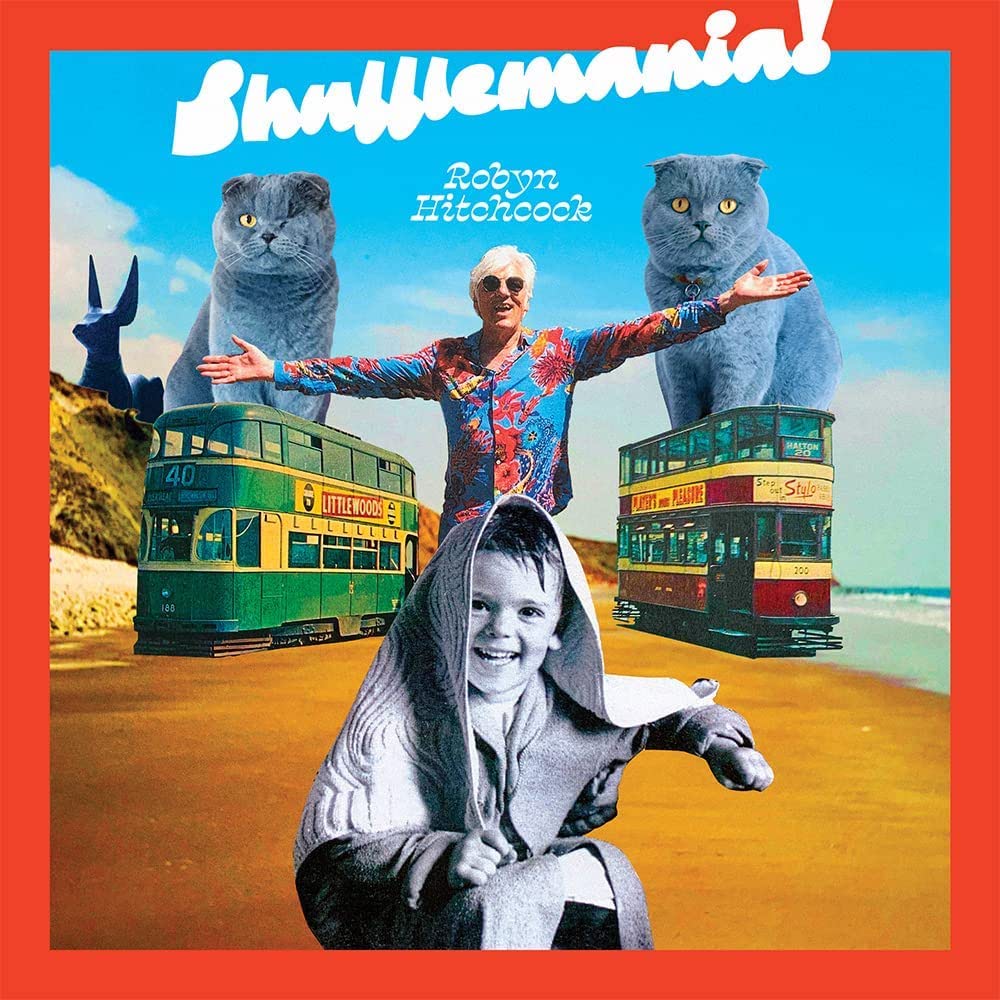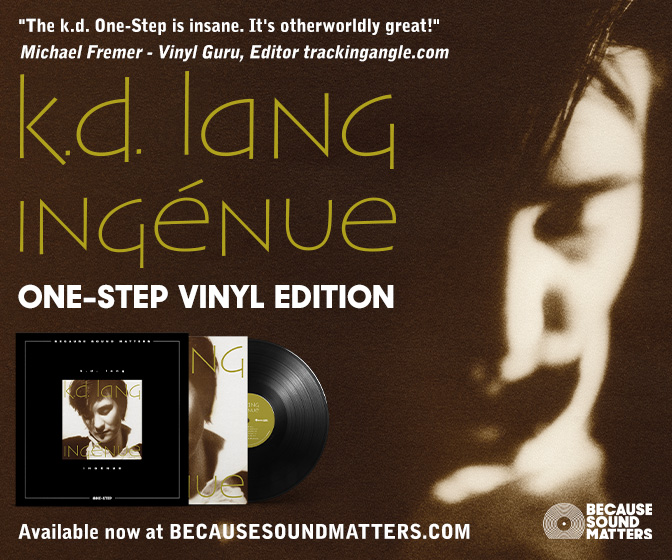Lockdown Turmoil Gifts Robyn Hitchcock Ten "Top Shelf" Songs
includes bonus interview
Fast on the approach to 70, where do we find Robyn Hitchcock these days? For a start…lyrically opening his parlour door to “The Shuffle Man” – the spirit of disorder inhabits the kickoff track to his latest album. “He's sort of the cheeky face of Destiny really,” Hitchcock explained over the line from London. “Certainly in times like 2020.”
Which is when the ethos of Shufflemania – his 22nd long player, partially came together. The turmoil of lockdown, as it turns out, has served our psychedelic hero well – gifting him 10 top shelf songs that he was able to adorn with the help of far-off friends and neighbors. Fellow Nashvillian Brendan Benson, for instance, becomes the entire band for “The Shuffle Man,” and delivers the kind of dynamic and untamed performance that doesn’t often turn up on his own records. And then there’s former Smiths’ guitarist Johnny Marr doing much of the same for “The Inner Life of Scorpio” – adding dimensions in guitars and strings to a simple song about an unreadable actor born under the most secretive of signs.
Those are just two examples of what’s possibly most striking about this collection. Studios have largely been what Hitchcock knows best, but this time around the pandemic mostly obliterated that recording approach. Isolation saw Hitchcock whizzing files back and forth online. As a result, the record features a broad supporting cast, some of which liberally added to the proceedings.
Take as a for instance Sean Lennon’s input to "One Day (It’s Being Scheduled)”. His contribution on drums was so well received, that the original parts he was sent wound up getting wiped, and the entire track was eventually reshaped around his input.
Elsewhere, there are six string appearances from former Soft Boys cohort Kimberley Rew. Historically Rew and Hitchcock's approaches to guitar have always been somewhat distinct, but the combination was always potent whenever it collides just so. On “The Sir Tommy Shovell,” they conjure a double six-string raver about the mythical pub Hitchcock has imagined with vegan casseroles and the “outsized trout that hangs above the door.”
Charlie Francis, former-Toyah bassist and one time lieutenant in the R.E.M. mafia, is another of “Shufflemania’s key players. He adds lovely keyboards to the cozy ballad that is “The Man Who Loves The Rain,” which also tacks on some tastefully atmospheric bass work from Wilco’s Patrick Sansone. And then there’s Hitchcock’s longtime drumming associate Morris Windsor, who adds his signature Beach Boys-styled harmonies to the album's closer “One Day (It's Being Scheduled)”. It’s a beautifully somber way to cap what could easily be considered Hitchcock’s best album since 2013’s Love From London.
The effect of all of this is that Shufflemania sonically identifies as a band album even though it was anything but. It sounds cohesive, despite not being traditionally assembled. Hitchcock and partner Emma Swift did at one point record some lovely harmonies inside of Abbey Road (“Socrates In Thin Air”), but in the context of a solo career that extends more or less back to 1981, this is a very 21st century effort.
Released on his wife’s Tiny Ghost Records label, our version of Shufflemania arrived on blue vinyl (limited transparent orange and classic black versions are also available…). It’s a solid, super quiet pressing (mastered by Gaz Williams at Black Belt in Seattle) with a nice dynamic warmth to it.
Robyn recently told a reporter that he’s already outlived his own history, and that a memoir wasn’t worth doing. Besides, he insisted, everything worth knowing about him is right there in his lyrics if your receiver is correctly adjusted. While this is probably true to a degree, since Hitchcock remains perpetually in motion, there’s still more of his story to tell.
Tracking Angle Interview with Robyn Hitchcock
Tracking Angle: Can you elaborate on the persona of the Shuffle Man?
Robyn Hitchcock: The Shuffle Man is one of a number of sub-personalities that appeared to me during 2020. They began to appear before the lockdown and then they carried on coming through the pandemic. They're like a series of superheroes or super villains if you like. I've even done drawings of them. And the Shuffle Man is like someone The Flash might have had as a nemesis in DC Comics. The Shuffle Man would have handed Flash a card and then he'd have vanished into the air and the Scarlet Speedster would be holding a card…you know…’The seven of diamonds…what does that mean?’ And then it turns out that the Shuffle Man's gonna rob seven jewelry stores in Central City and The Flash has to be in all of them within three minutes.
I suppose they're all like Gods really. You need to stay on the right side of them…the Shuffle Man particularly, because (he) has to do with chance. And chance is kind of like fate without the gravitas.
TA: Has the randomness of social media affected your work yet?
RH: God, not yet! But it could happen. I mean I've met people on Twitter I suppose. I met Sean Lennon through Twitter. I've seen him around but that was where he came and said ‘Hello.’
TA: I don’t think you were ever one to be particularly fascinated by computers, but have you gotten more comfortable with technology these days?
RH: I'm comfortable with something once it's smaller than my hand basically. I wasn't gonna fall in love with a desktop computer…you know with one of those gray citadels that took over people's desks about 30 years ago with out buildings that all look like a sort of Manhattan. I recorded Shufflemania on this Zoom H6. You could fit two of them inside a box of Cheerios. And they were as indeed as easy to operate as I thought, so I got one of those. It's got something like four and a half channels. Or six channels. I don't know how to overdub on it but I was able to do the basic voice and guitar tracks and then I sent them off to other people. So something like “The Raging Muse” was done in Nashville, and then it went to Australia and then it came back to Nashville for a bit, and then it went to Cardiff and then it came back to London.
TA: Are you keen to further explore that way of working, or are you jonesing to get back into a studio?
RH: I think it shows you that you don't have to be in the room with them. I mean really, as soon as overdubbing became the thing as opposed to everybody standing around the microphone doing one take together, then it's been on the cards that people would record at separate times and then in separate studios and then from separate countries. It's all become increasingly fragmented…or modular, if that's the right expression. I would certainly never have worked with all those people on this record (otherwise). It could only have happened long distance. So again, that's an example of chance handing me a particular card. And the path I took…I got direction from the Shuffle Man.










































